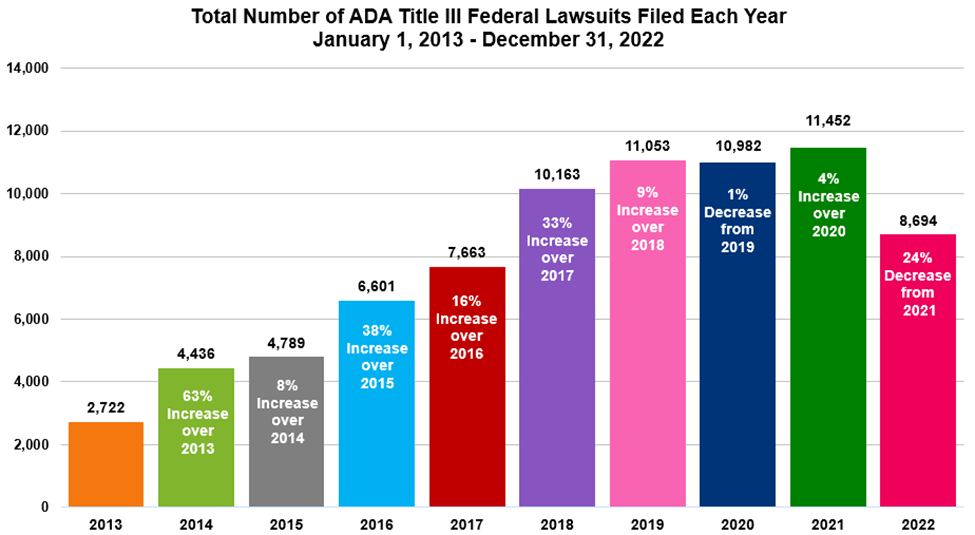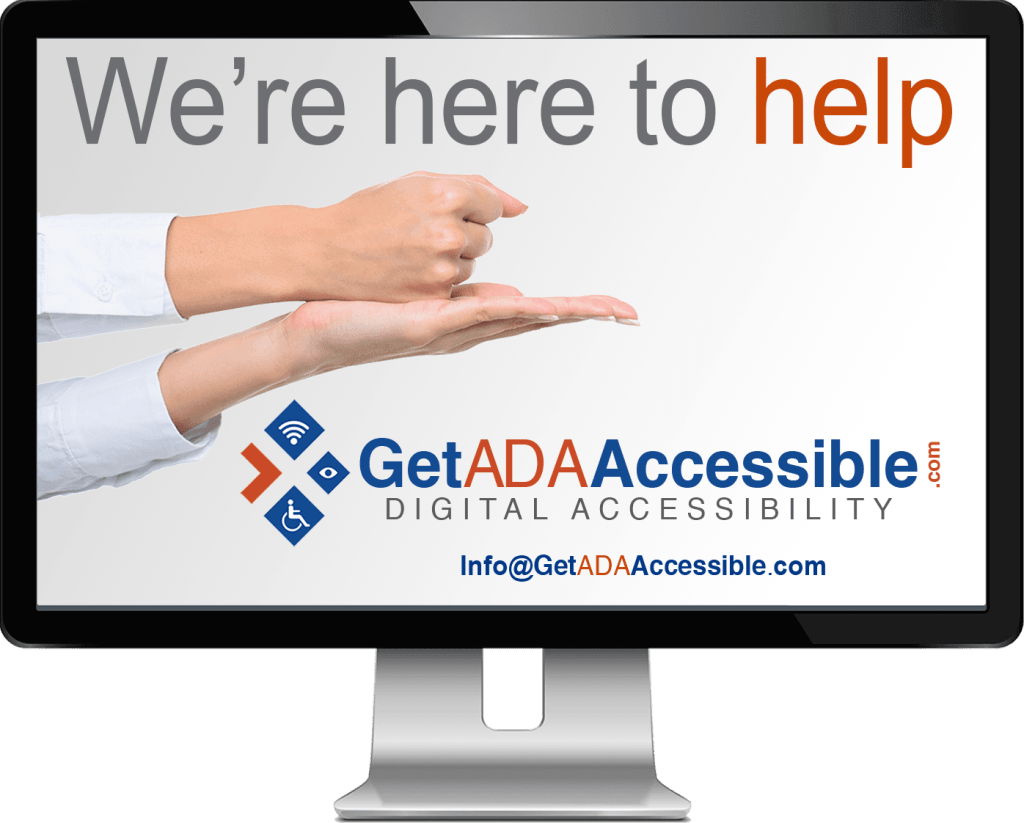Lawsuits Against Website Owners for ADA Non-Compliance
What happens if you do not comply with the law?
In recent years, lawsuits against website owners for ADA non-compliance have been on the rise. It’s crucial to understand the legal implications of failing to meet accessibility standards. This article explores the consequences and penalties faced by organizations that do not comply with the law.
If you have not heard from the U.S. Department of Education’s Office for Civil Rights (OCR), chances are increasing that you will. The OCR is increasing the number of investigations to ensure school districts are complying with their legal obligation under Title III of the Americans with Disabilities Act (ADA) and Section 504 of the Rehabilitation Act of 1973, both outline the requirements to avoid discrimination against individuals with disabilities. As many as 350 investigations have been performed by the OCR along with many individuals and disability advocacy groups are filing legal demand letters and lawsuits against educational institutions. Most of these have reached successful settlements. Source: LegalNewsLine.com.
Landmark Settlements
Noel Nightingale, a blind parent Co-Plaintiff, the National Federation of the Blind sued Seattle Public Schools. Nightingale notified the school district in 2012 that its websites were not compatible with the screen reader which reads aloud website content and documents or displayed in braille on another device. The incompatibility was due to changes that had been made on the website in 2012.
In 2014, Nightingale sued the district and a settlement was reached. The school board estimated it will cost them approximately $665,000-$815,000 to implement the needed changes, attorney fees, accessibility coordinator and training of staff. Source: SettleTimes.com.
This was a landmark settlement agreement in that NFB President Mark Riccobono said he intends the settlement agreement to “serve as a model for the nation and should put school districts on notice that we can no longer wait to have equal education for blind students and to have access to information, use of school services, and full participation in school activities by blind faculty, personnel, and parents.”
In 2016, many lawsuits were filed by individuals and supported by the NFB and Justice Department.
Ms. Dudley, of Miami University in Oxford, Ohio sued the University for discrimination stating the website did not work with her screen reader. In its separate agreement with Ms. Dudley, the University denied liability but agreed to pay Dudley $108,000 for expenses toward an undergraduate degree at another university. Miami University also agreed to pay Dudley $102,000 for pain and suffering and repay up to $50,000 for student loans. Source: Seattle Times.
The last several years, there has been an increase in lawsuits against online businesses.
Sayforth noted in a recent post entitled: Website Accessibility Lawsuits Increased in 2021 Despite Mid-Year Pandemic Lull “The numbers are in for total website accessibility lawsuit filings in federal courts in 2021, and they show a whopping 14% increase from 2020. The total number of lawsuits filed in federal courts alleging that plaintiffs with a disability could not use websites because they were not designed to be accessible and/or work with assistive technologies in 2021 was 2,895–372 more than 2020. This 14% increase in the number of lawsuits in 2021 exceeds the 12% increase we saw in 2020.”

Online Businesses under fire
Target learned this from a $6 Million class action lawsuit settlement, as did H & R Block, Home Depot, and other businesses. The fines and consequences are serious for those in non-compliance.
Target stores set a precedent in 2008 when it agreed to settle a lawsuit alleging that its website was not accessible to the blind, agreeing to improve the website and pay $6 million into a “Damages Fund” for members of the class-action lawsuit. The court also awarded about $3.7 million in attorney fees.
In a March 2014, subsidiaries of H & R Block agreed to pay $45,000 to two individual plaintiffs and a $55,000 civil penalty.
WCAG 2.0 and Section 508 Non-Compliance Penalties
Fines up to $55,000 for the first violation and $110,000 for each subsequent violation.
Section 508 applies when:
- You are a government agency.
- You are a vendor or contractor for a government agency.
- You administer a federal program.
- You are an educational institution that receives federal funds via the Assistive Technology Act.
Make us your accessibility partner.
Rather than scramble to fix an issue when you’re under the pressure of a pending legal matter, it’s always easier and best to be proactive. We’re here to help you no matter which situation are you in.
Next Steps:
Schedule a convenient time to discuss your needs. We can work with you, your internal IT professionals, or your legal counsel to make sure that all stakeholders understand the requirements of full digital inclusion for those who are sight impaired, deaf or hard of hearing, or who have physical limitations that prevent them from navigating your site, and to ensure that this diverse demographic of potential customers have access to all of the products, information, and resources that you offer.
We will review your goals with you and determine the best solution for your business as well as the best options for remediation and ongoing methods of keeping your website accessible.
Contact GET ADA Accessible
"*" indicates required fields
Schedule A Time To talk
Our accessibility team is here to help you every step of the way.

